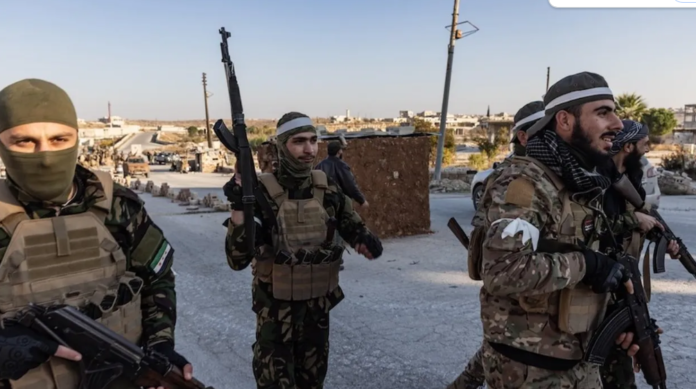Iranian military commanders and personnel began evacuating Syria on Friday, signaling Tehran’s waning ability to support President Bashar al-Assad as his forces struggle against a renewed rebel offensive led by the Islamist group Hayat Tahrir al-Sham (HTS), according to The New York Times.
This move comes as Syrian government troops face significant setbacks, with rebels advancing steadily over the past week. On Thursday, the opposition forces scored a major victory by capturing the strategic city of Hama, dealing a blow to Assad’s control in northern Syria.
Turkish President Recep Tayyip Erdogan expressed cautious optimism about the rebels’ momentum. “The target is Damascus. I would say we hope for this advance to continue without any issues,” Erdogan said on Friday, while also acknowledging the complex dynamics of the region.
Despite his support for Syrian rebel factions over the years, Erdogan emphasized that Turkey does not endorse the operations of HTS, a former Al-Qaeda affiliate. “Our heart does not want these [advances]. Unfortunately, the region is in a bind,” Erdogan remarked, reiterating Ankara’s stance against groups it deems terrorist organizations.
As the conflict escalates, Iran has begun relocating key military personnel, including top commanders of the Quds Force—the elite unit of the Islamic Revolutionary Guard Corps—via planes and land routes to Iraq, Lebanon, and Tehran. Reports indicate the evacuation was coordinated by the Iranian Embassy in Damascus and Revolutionary Guards bases.
Iran has been a staunch ally of Assad throughout the civil war, providing military support to bolster his regime against a wide range of opposition forces. However, the recent evacuation underscores the challenges Iran faces in maintaining its influence amidst the shifting dynamics of the conflict.
Turkey, which has long supported rebel groups opposing Assad, has denied any involvement in the recent uprising. Ankara has also called on Assad to engage in dialogue with the Syrian people to achieve a political resolution and warned against further violence that could trigger a new wave of refugees.
The Syrian civil war, which began in 2011 as a peaceful uprising, has evolved into a multifaceted conflict involving local, regional, and international actors. The latest developments mark a turning point, with rebel forces potentially poised to advance further toward Damascus.
As the situation unfolds, the international community watches closely, wary of the broader implications for regional stability.



